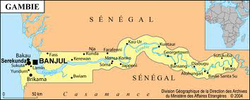Two North American representatives to the Congress introduce a Bill organising exchanges of information between private undertakings, mainly the Internet Service Providers, social networks, search engines and the National Security Agency (NSA). The purpose is to protect sites against cybercrime, espionage, etc. Undertakings expressed their disagreement regarding the previous project aims at organising the access to their data stored in favour the FBI (the Federal Bureau of Investigation) to serve the security of the country, are this time in favour of the Bill, because it protects their systems, but the associations of the defence of fundamental freedoms are opposed, by referring to the fourth amendment, which protects every citizen of any non-motivated order for seizure. Fixed on April, 23 2012, the confrontation have since been gained strength, the registration to vote was cancelled and postponed sine die.




